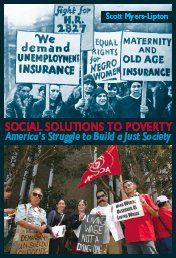Wednesday, January 30, 2008
WASHINGTON -- Encouraging allies to click away in pursuit of cyber democracy, a coalition of activists is pushing sponsors of this week's California debates to ask the presidential candidates about their plans to encourage hurricane recovery efforts along the Gulf Coast.
The result: As of Tuesday afternoon, a question asking the candidates whether they support the Gulf Coast Civic Works Act, which would pay for infrastructure projects employing local and displaced workers, has jumped to the most-voted-for question among the more than 3,800 suggested for Thursday's Democratic debate. The same question ranked No. 3 in votes among more than 3,500 proposed for tonight's GOP debate.
Both debates will be televised on CNN.
Politico, a Web-based political newspaper distributed in Washington, which is co-sponsoring the debates with CNN and the Los Angeles Times, said it will list the 150 questions with the most votes on its Web site, www.politico.com, today and during the debates and that some of the most popular questions will be asked of the candidates during the debates.
Stephen Bradberry, Louisiana organizer for the Association of Community Organizations for Reform Now, said it's important for Gulf Coast recovery issues to stay in the national forefront and that one way to do that is to raise the issue during the presidential debates. He said only a few questions about Katrina have been asked during the 20 Democratic debates so far, and not one during the 19 Republican debates.
"We want to keep the issue alive," said Bradberry, who noted that the biggest chance for getting the issues a full airing was lost when the Commission on Presidential Debates refused to hold a debate in New Orleans.
"If the debate is not coming to the Gulf Coast, then we need to bring the Gulf to the debate," he said.
ACORN and other groups, including the Gulf Coast Civic Works Project, the Louisiana Disaster Recovery Foundation and the RFK Center for Human Rights, cite a June article by pollster John Zogby to argue that that there's still a lot of voter interest in the issues raised by Hurricane Katrina and recovery efforts. Zogby wrote that "Katrina over the long haul will prove to more of a defining moment in American history than the terrorist attacks on Sept. 11, 2001," and that Americans have a "hunger nationwide for a new model for the federal government."
Although hurricane recovery hasn't come up much during the debates, it has generated some discussion even without specific questions by moderators. During a GOP debate in August, former Arkansas Gov. Mike Huckabee said he watched nonstop TV coverage of the hurricane in August 2005 that showed people desperately seeking help. "It was just was beyond my comprehension that we could get TV cameras to these people," he said, "but we couldn't get a boat, or a bottle of water to them."
At another GOP debate, Sen. John McCain, R-Ariz., said government's failure to respond quickly to Katrina, along with failures to control U.S. borders from illegal immigration and missteps in Iraq, made Americans skeptical about the government's ability to deliver on politicians' promises.
At Democratic debates, Sens. Hillary Clinton, D-N.Y., Barack Obama, D-Ill., and former Sen. John Edwards, D-S.C., have outlined their own plans to aid recovery efforts.














 The Alliance for Affordable Energy
The Alliance for Affordable Energy  The mission of the
The mission of the  The Gulf Coast Civic Works Project
The Gulf Coast Civic Works Project 
